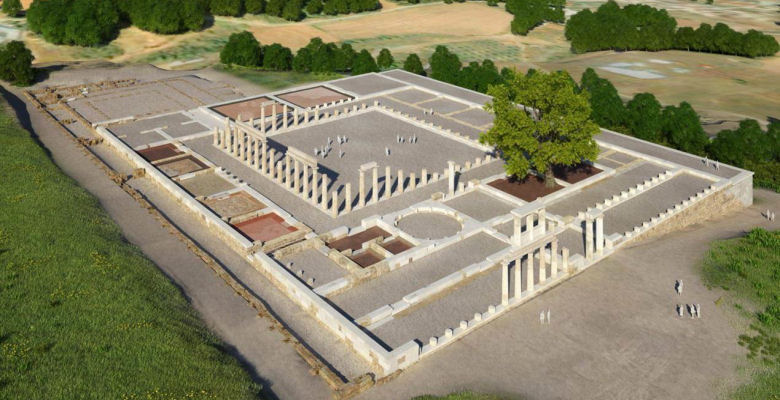Armchair archaeological digs

Drones are helping to digitally recreate lost worlds through a Europe-wide DigiArt project led by LJMU, which allows people access to archaeological sites from anywhere, even their armchairs.
As part of the next step of DigiArt, drones (also known as Unmanned Aerial Vehicles), researchers are concentrating on three sites; the Royal tombs of the family of Alexander the Great, the Scladina Cave site in Belgium and Roman skeletons found in Gloucester.
The project, which received €2.3 million of its funding from the European Union under Horizon 2020, sets out to develop complex software to identify objects and automatically extract their meaning which will result in what the project terms, "the internet of historical things", available anywhere, at any time, on any web-enabled device. A person connected to the internet will be able to hold a virtual museum object and will be able to find other similar object elsewhere in the museum, or in a museum in a different country.
Professor David Burton, who leads the LJMU Drones Research Laboratory, and is Director of the General Engineering Research Institute told BBC Radio 4:
“The drones operate autonomously and gather 3D data for us in a few days that would normally take over a year so we can build really rich and detailed worlds based on archaeological sites.
He continued:
"Virtual reality worlds are not new, but what is unique about the LJMU project is the level of detail the machines and their cameras pick up."
Dr Isabelle De Groote, LJMU, Lecturer in Biological Anthropology also spoke to BBC Radio 4:
"This will allow people to find similar objects within museums and sites as the motion sensors provide additional information."
DigiArt has been developed by a consortium of seven academic, industrial and museum partners: Liverpool John Moores University, The Centre for Research & Technology, Hellas (CERTH), Centre national de la recherche scientifique (CNRS), The Museum of the Royal Tombs of Aigai, Pix4D, Scladina Cave Archaeological Center and Vulcan UAV Ltd.
Listen to the academics discuss the new project on BBC Radio 4 - (at approx 25 mins)
Read more about this on the website The DigiArt project
This project has received funding from the European Union’s Horizon 2020 research and innovation programme under grant agreement No 665066


